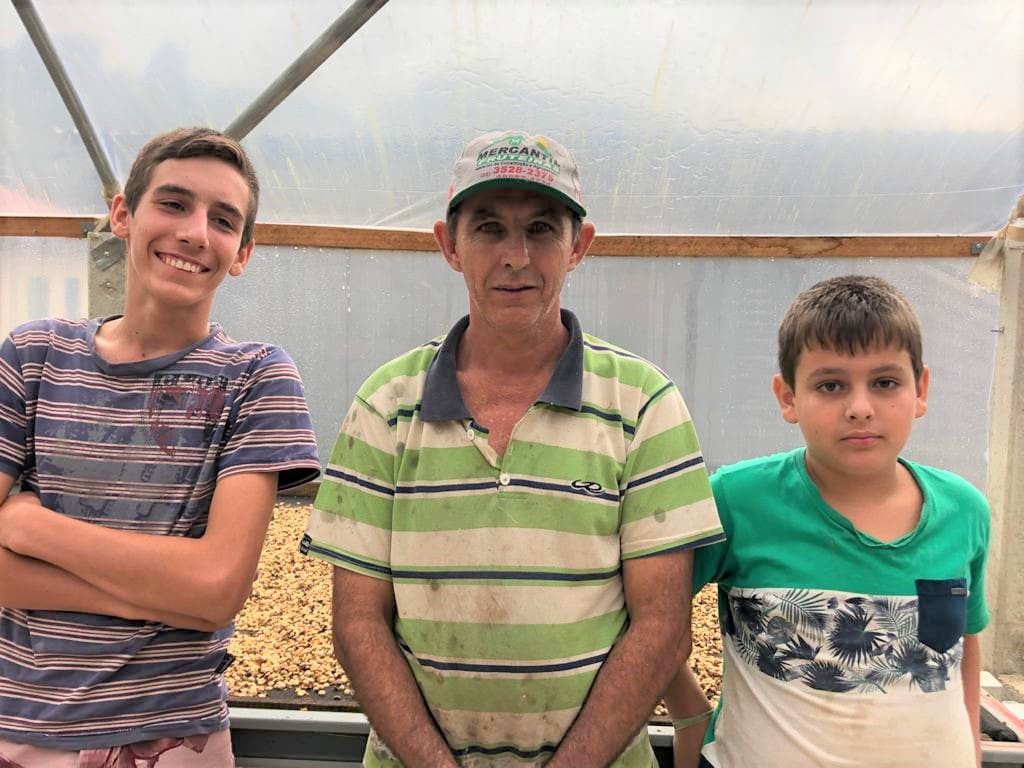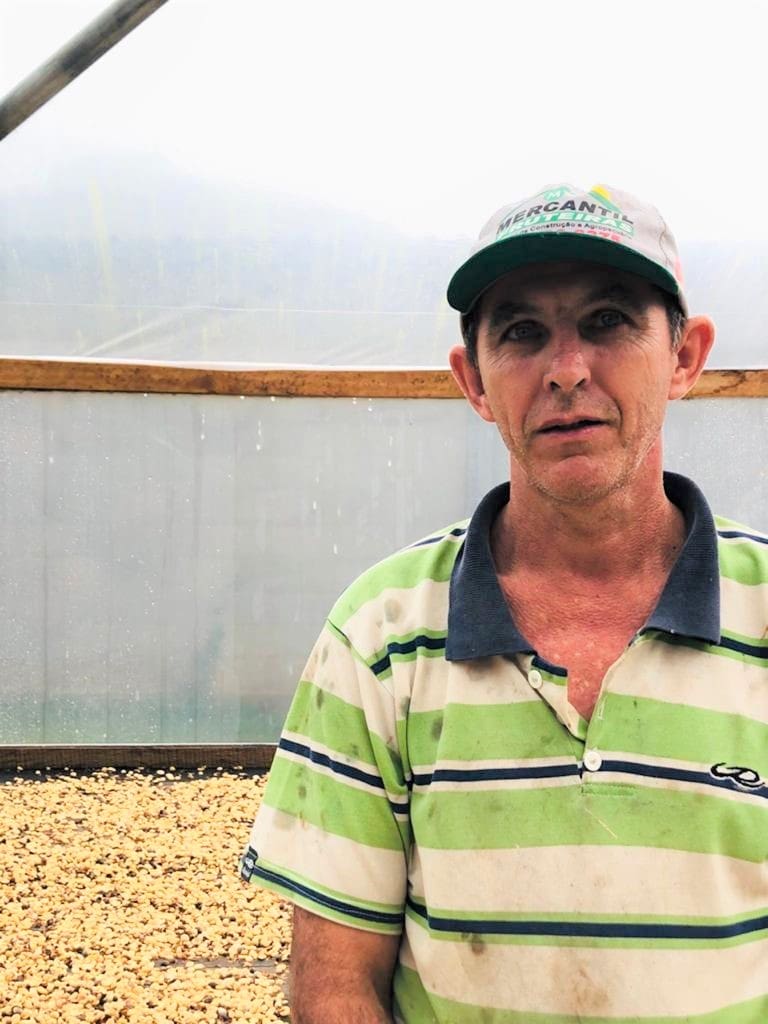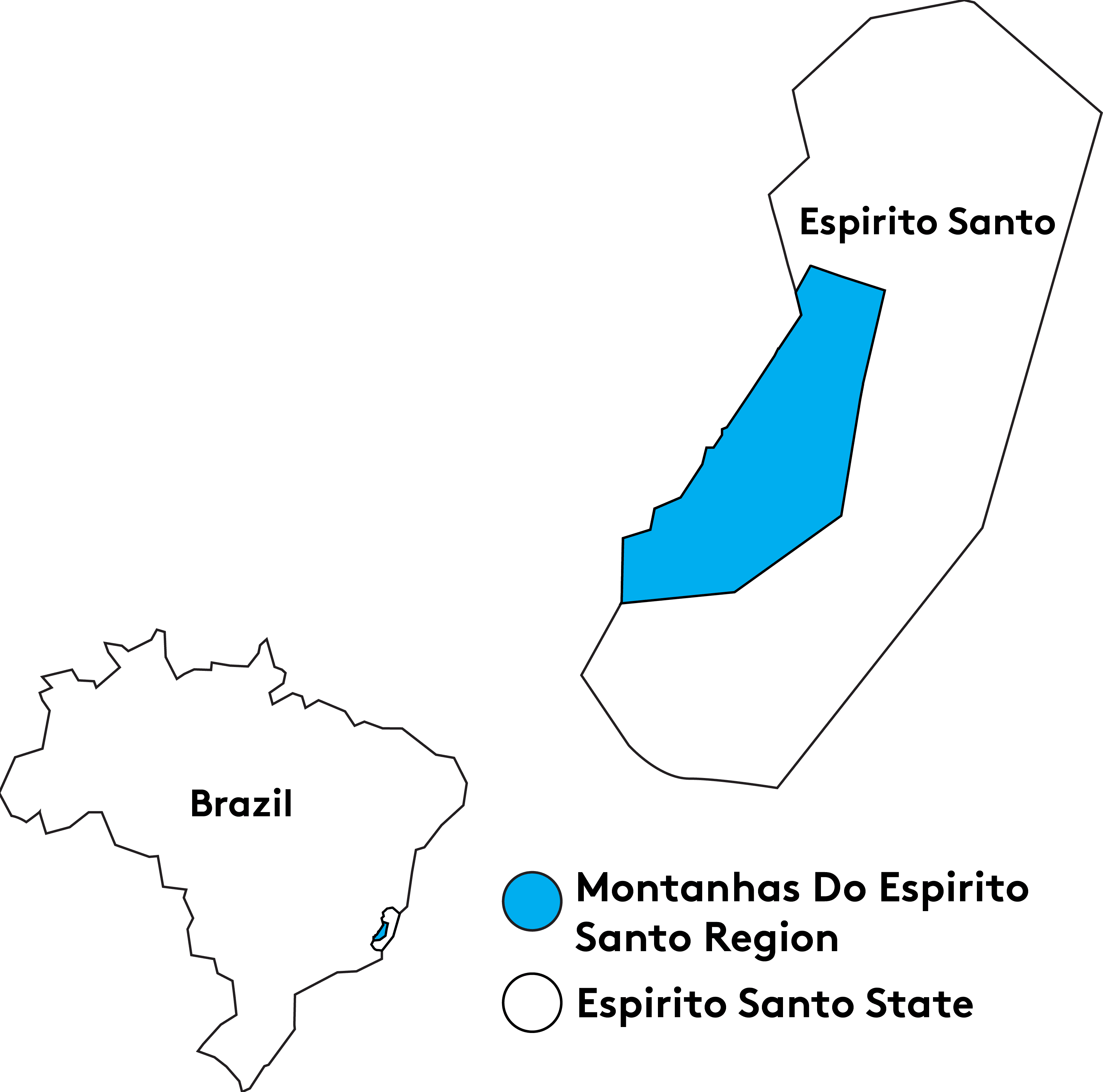José Antonio Debona Romão was born and raised on his family’s property in the city of Castelo, Espírito Santo, Brazil. His father, José Romão, acquired the property in the 1960s and planted the first coffee trees there. They continued working in partnership with his brother, increasing the production area and improving the management of the farm and crops.
In 2000, José Antonio began depulping coffee with the intention of improving quality and adding value. Lot by lot, he began identifying the property’s potential to produce specialty coffee and his coffees were awarded prizes in various cup competitions.
The partnership ended in 2018, and José Antonio embarked on his own. He continued working on the production of pulped coffee, setting up his own machinery and investing in an improved structure for coffee production. Today, he works a 9 hectare farm with his family, continuing practices like selective harvest in his pursuit of better quality year after year.
This lot of Mundo Novo coffee underwent Pulped Natural processing. Mundo Novo is the product of a natural cross between Sumatra and Red Bourbon, discovered in the municipality of Mineiros do Tietê, São Paulo in 1943. Seeds from one of these trees were planted in the municipality of Mundo Novo, now called Urupês, in Sao Paulo state. Various lines of the plant were cultivated here, undergoing selection for positive characteristics. The results of this cultivation were finally distributed to farmers beginning in 1952, with new selections by the IAC (Agronomic Institute of Campinas) beginning in 1977.


